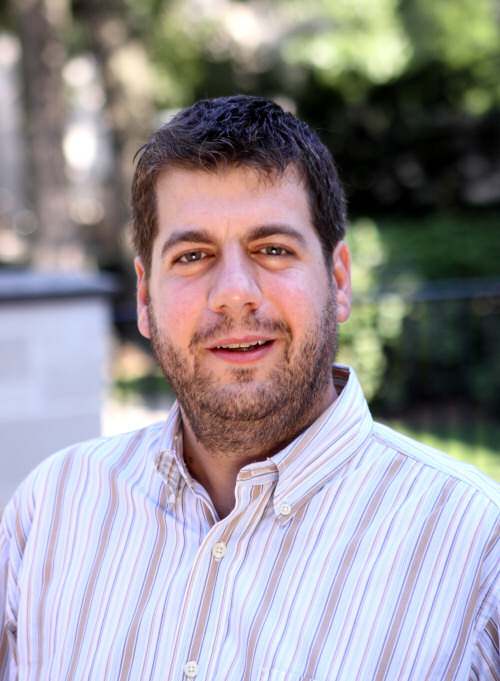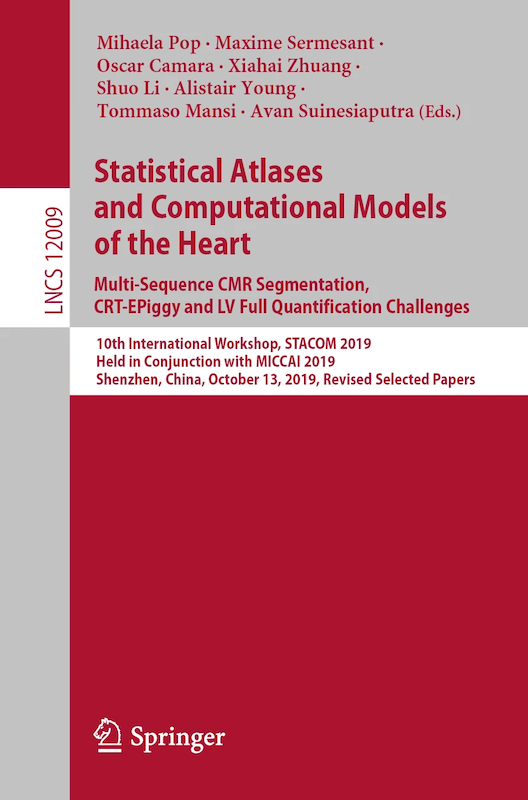Program
| 8:00-8:35 | Welcome |
| 8:35-9:15 | Disentangled representation learning in medical imaging Keynote speaker: Professor Sotirios A. Tsaftaris (University of Edinburgh, UK)  The detection of disease, segmentation of anatomy and other classical analysis tasks, have seen incredible improvements due to deep learning. Yet these advances need lots of data: for every new task, new modality, new hospital more training data are needed. In this talk, I will show how deep neural networks can learn latent and disentangled embeddings suitable for several analysis tasks in the heart. Within a multi-task learning setting I will show that the same framework can learn embeddings drawing supervision from self-supervised tasks that use reconstruction and also temporal dynamics overall reducing considerably need for annotation. I will discuss how different architectural choices can solve key problems in multimodal data processing and critically also allow us to learn reducing need for image-level annotations by obtaining supervision also from text-based health records. I will conclude by highlighting challenges for deep learning in healthcare in general. The detection of disease, segmentation of anatomy and other classical analysis tasks, have seen incredible improvements due to deep learning. Yet these advances need lots of data: for every new task, new modality, new hospital more training data are needed. In this talk, I will show how deep neural networks can learn latent and disentangled embeddings suitable for several analysis tasks in the heart. Within a multi-task learning setting I will show that the same framework can learn embeddings drawing supervision from self-supervised tasks that use reconstruction and also temporal dynamics overall reducing considerably need for annotation. I will discuss how different architectural choices can solve key problems in multimodal data processing and critically also allow us to learn reducing need for image-level annotations by obtaining supervision also from text-based health records. I will conclude by highlighting challenges for deep learning in healthcare in general. |
| 9:15-10:30 | Regular papers |
| 9:15-9:27 | Assessing the Impact of Blood Pressure on Cardiac Function Using Interpretable Biomarkers and Variational Autoencoders (EP Anton, B Ruijsink, J Clough, I Oksuz, D Rueckert, R Razavi, A King) |
| 9:27-9:40 | A Cascade Regression Model for Anatomical Landmark Detection (Z Tan, Y Duan, Z Wu, J Feng, J Zhou) |
| 9:40-9:52 | Comparison of 2D Echocardiography and Cardiac Cine MRI in the Assessment of Regional Left Ventricular Wall Thickness (V van Hal, D Zhao, K Gilbert, TPB Gamage, C Mauger, RN Doughty, ME Legget, J Zhao, A Nalar, O Camara, AA Young, VY Wang, M Nash) |
| 9:52-10:05 | Learning interactions between cardiac shape and deformation: application to pulmonary hypertension (M Di Folco, P Clarysse, P Moceri, N Duchateau) |
| 10:05-10:17 | Deep Learning Surrogate of Computational Fluid Dynamics for Thrombus Formation Risk in the Left Atrial Appendage (X Morales, J Mill, KA Juhl, A Olivares, G Jimenez-Perez, RR Paulsen, O Camara) |
| 10:17-10:30 | Probabilistic Motion Modeling from Medical Image Sequences: Application to Cardiac Cine-MRI (J Krebs, T Mansi, N Ayache, H Delingette) |
| 10:30-10:45 | Coffee break |
| 10:45-12:00 | CRT-EPIGGY19 Challenge |
| 10:45-11:00 | Best (and worst) practices for organizing a challenge on cardiac biophysical models during AI summer: the CRT-EPiggy19 challenge (O Camara) |
| 11:00-11:10 | Electrophysiological Model Personalisation to Porcine in-vivo Data for Paced Activation Prediction (Cedilnik, M Sermesant) |
| 11:10-11:20 | Evaluation of meshless methods for cardiac electrophysiological simulations based on porcine experimental data (KA Mountris, E Pueyo) |
| 11:20-11:30 | Prediction of electrical activation patterns after cardiac resynchronization therapy in porcine hearts with meshless models (C Albors, E Lluch, JM, R Doste, O Camara, M De Craene, H Morales) |
| 11:30-11:40 | Prediction of CRT activation sequence by personalization of biventricular model from electroanatomical maps (JF Gomez, B Trenor, R Sebastian) |
| 11:40-11:50 | Optimization of CRT therapy device based on personalized computer model (S Khamzin, A Dokuchaev, O Solovyova) |
| 11:50-12:00 | Challenge wrap-up |
| 12:00-12:36 | Regular poster teaser (2 min for each poster |
| 12:36-14:00 | Lunch, poster presentation, scoring |
| 14:00-15:15 | LV Full Quantification Challenge |
| 14:00-14:20 | Challenge data and description from the organizers |
| 14:20:14:30 | Left Ventricle Quantification Using Direct Regression with Segmentation Regularization and Ensembles of Pretrained 2D and 3D CNNs (N Gessert, A Schlaefer) |
| 14:30-14:40 | Left Ventricle Quantification with Cardiac MRI : Deep Learning Meets Statistical Models of Deformation (JC Acero, H Xu, E Zacur, J Schneider, P Lamata, A Bueno-Orovio, V Grau) |
| 14:40-14:50 | Left Ventricular Parameter Regression From Deep Feature Maps of a Jointly Trained Segmentation CNN (S Tilborghs, F Maes) |
| 14:50-15:00 | A Two-Stages Temporal-Like Fully Convolutional Network Framework for Left Ventricle Segmentation (Z Zhao, N Boutry, E Puybareau, T Géraud) |
| 15:00-15:15 | Challenge wrap-up |
| 15:15-15:30 | Coffee break |
| 15:30-17:00 | Multi-Sequence Cardiac MR Segmentation Challenge |
| 15:30-15:40 | Challenge introduction |
| 15:40-15:53 | Unsupervised Multi-modal Style Transfer for Cardiac MR Segmentation (C Chen, C Ouyang, G Tarroni, J Schlemper, H Qiu, W Bai, D Rueckert) |
| 15:53-16:06 | Combining Multi-Sequence and Synthetic Images for Improved Segmentation of Late Gadolinium Enhanced Cardiac MRI (VM Campello, C Martin-Isla, CI Morcillo, MAG Ballester, K Lekadir) |
| 16:06-16:19 | Multi-sequence Cardiac MR Segmentation with Adversarial Domain Adaptation Network (J Wang, H Huang, C Chen, W Ma, Y Huang, X Ding) |
| 16:19-16:32 | SK-Unet: an Improved U-net Model with Selective Kernel for the Segmentation of Multi-sequence Cardiac MR (X Wang, S Yang, M Tang, Y Wei, X Han, L He, J Zhang) |
| 16:32-16:45 | Automated Multi-sequence Cardiac MRI Segmentation Using Supervised Domain Adaptation (S Vesal, N Ravikumar, A Maier) |
| 16:45-16:58 | Cardiac Segmentation of LGE MRI with Noisy Labels (H Roth, W Zhu, D Yang, Z Xu, D Xu) |
| 17:00-17:15 | Closing and awards |

